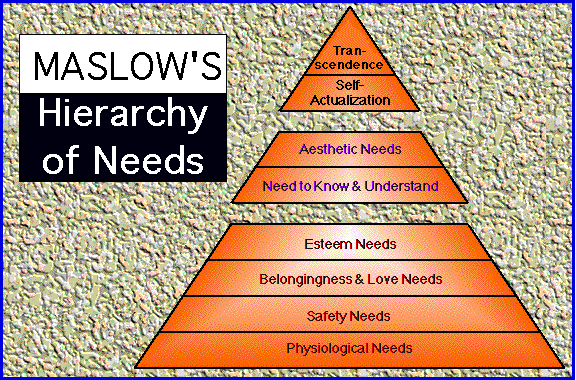Part 1: Position Statements and Influential Practices
NAEYC. (2009). Developmentally appropriate practice in early childhood programs serving children from birth through age 8. Retrieved May 26, 2010, from
http://www.naeyc.org/files/naeyc/file/positions/dap
NAEYC. (2009). Where we stand on child abuse prevention. Retrieved May 26, 2010, from
http://www.naeyc.org/files/naeyc/file/positions/ChildAbuseStand.pdf
NAEYC. (2009). Where we stand on school readiness. Retrieved May 26, 2010, from
http://www.naeyc.org/files/naeyc/file/positions/Readiness.pdf
NAEYC. (2009). Where we stand on responding to linguistic and cultural diversity. Retrieved May 26, 2010, from
http://www.naeyc.org/files/naeyc/file/positions/diversity.pdf
NAEYC. (2003). Early childhood curriculum, assessment, and program evaluation: Building an effective, accountable system in programs for children birth through age 8. Retrieved May 26, 2010, from
http://www.naeyc.org/files/naeyc/file/positions/pscape.pdf
NAEYC. (2009, April). Early childhood inclusion: A summary. Retrieved May 26, 2010, from
http://www.naeyc.org/files/naeyc/file/positions/DEC_NAEYC_ECSummary_A.pdf
Zero to Three: National Center for Infants, Toddlers, and Families. (2010). Infant-toddler policy agenda. Retrieved May 26, 2010, from
http://main.zerotothree.org/site/PageServer?pagename=ter_pub_infanttodller
FPG Child Development Institute. (2006, September). Evidence-based practice empowers early childhood professionals and families. (FPG Snapshot, No. 33). Retrieved May 26, 2010, from
http://www.fpg.unc.edu/~snapshots/snap33.pdf
Note: The following article can be found in the Walden University Library databases.Turnbull, A., Zuna, N., Hong, J. Y., Hu, X., Kyzar, K., Obremski, S., et al. (2010). Knowledge-to-action guides. Teaching Exceptional Children, 42(3), 42–53.
Use the Academic Search Complete database, and search using the article's title.
Part 2: Global Support for Children’s Rights and Well-Being
Article: UNICEF (n.d.). Fact sheet: A summary of the rights under the Convention on the Rights of the Child. Retrieved May 26, 2010, from
http://www.unicef.org/crc/files/Rights_overview.pdf
Websites:
World Forum Foundation
http://worldforumfoundation.org/wf/wp/about-us
This link connects you to the mission statement of this organization. Make sure to watch the video on this webpage
World Organization for Early Childhood Education
http://www.omep-usnc.org/
Read about OMEP’s mission.
Association for Childhood Education International
http://acei.org/about/
Click on “Mission/Vision” and “Guiding Principles and Beliefs” and read these statements.
Part 3: Selected Early Childhood Organizations
National Association for the Education of Young Children
http://www.naeyc.org/
The Division for Early Childhood
http://www.dec-sped.org/
Zero to Three: National Center for Infants, Toddlers, and Families
http://www.zerotothree.org/
WESTED
http://www.wested.org/cs/we/print/docs/we/home.htm
Harvard Education Letter
http://www.hepg.org/hel/topic/85
FPG Child Development Institute
http://www.fpg.unc.edu/main/about.cfm
Administration for Children and Families Headstart’s National Research Conference
http://www.acf.hhs.gov/programs/opre/hsrc/
HighScope
http://www.highscope.org/
Children’s Defense Fund
http://www.childrensdefense.org/
Center for Child Care Workforce
http://www.ccw.org/
Council for Exceptional Children
http://www.cec.sped.org//AM/Template.cfm?Section=Home
Institute for Women’s Policy Research
http://www.iwpr.org/index.cfm
National Center for Research on Early Childhood Education
http://www.ncrece.org/wordpress/
National Child Care Association
http://www.nccanet.org/
National Institute for Early Education Research
http://nieer.org/
Pre[K]Now
http://www.preknow.org/
Voices for America’s Children
http://www.voices.org/
The Erikson Institute
http://www.erikson.edu/
Part 4: Selected Professional Journals Available in the Walden Library
YC Young Children
Childhood
Journal of Child & Family Studies
Child Study Journal
Multicultural Education
Early Childhood Education Journal
Journal of Early Childhood Research
International Journal of Early Childhood
Early Childhood Research Quarterly
Developmental Psychology
Social Studies
Maternal & Child Health Journal
International Journal of Early Years Education
5. Sally's Additional Resources:
Websites:
Brazelton's Touchpoints Center
http://www.touchpoints.org/
(Offers resources for parents and providers in its endeavor to strengthen relationships for the betterment of children)
Books:
Touchpoints-Birth to Three and
Touchpoints-Three to Six
both are by T. Berry Brazelton, M.D., and Joshua Sparrow, M.D.
(Offers an array of ideas concerning the development or "Touchpoints" of young children and how to best deal with those milestones of varied behavior.)
Calming Your Fussy Baby The Brazelton Way
by T. Berry Brazelton, M.D., and Joshua Sparrow, M.D.
(There are six other Brazelton Way books (
Discipline,
Toilet Training,
Discipline,
Understand Sibling Rivalry,
Sleep,
Mastering Anger and Aggression, and
Feeding Your Child. They convey messages from the "Touchpoints" books, but emphasize specific subjects singularly)
Use Your Words: How Teacher Talk Helps Children Learn
by Carol Garhart-Mooney
(Through sharing real-life happenings from the classroom, the author helps the reader to understand how they can use their teacher language to help children learn and to manage the classroom atmosphere)
Theories of Childhood: An Introduction to Dewey, Montessori, Erikson, Piaget, and Vygotsky
by Carol Garhart-Mooney
(Offers the reader a basic understanding of the ideologies of five renowned child development theorists)








